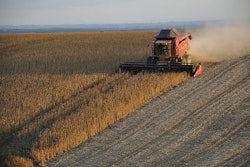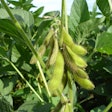
According to a report in the Washington Examiner, the omnibus bill to fund the government includes a fix to a problem with the new tax law that created a loophole for farmers who sold to cooperatives, says a GOP aide.
Farmer and grain industry lobbyists had offered a solution to the so-called “grain glitch” last week, one that was embraced by Republicans. Now, the fix is set to become law as part of the broader government spending bill with Democratic votes.
Congressional leaders were moving toward unveiling the $1.3 trillion fiscal year 2018 funding bill Wednesday for passage later this week or weekend.
The tax tweak is just one of many provisions embedded within the legislation, which is likely to be the last must-pass bill to head to President Trump’s desk before the midterms.
At issue was a flaw in the law’s special tax break for businesses that aren’t C-Corporations. The flaw would have accidentally created a major incentive for farmers to sell to cooperatives rather than to other buyers. In doing so, they could have lowered or eliminated their tax liability.
Democrats have suggested they are not eager to help the GOP fix problems with the tax law, which passed with only Republican votes.
The National Grain and Feed Association (NGFA) commends the bipartisan congressional leadership for correcting the unintended consequences of Section 199A.
The NGFA and National Council of Farmer Cooperatives had issued a joint statement on March 13 supporting prompt enactment of the legislative language, which was developed after months of collaboration and extensive analysis in an effort to replicate to the greatest extent possible the tax benefits accorded to farmer-owned cooperatives and their farmer-patrons under the previous Section 199 (also known as the Domestic Production Activities Deduction), while also restoring the competitive landscape of the marketplace as it existed in December 2017 so that the tax code does not provide an incentive for farmers to do business with a company solely because it is organized as a cooperative or private/independent firm.
Pending verification that the final language accurately reflects the concepts developed by NGFA and NCFC, NGFA said it will urge its prompt passage.
"There is a huge sense of urgency in getting this issue resolved, as producers continue to make marketing decisions, particularly given the welcome rally in corn and soybean prices in recent weeks," says NGFA President and Chief Executive Officer Randy Gordon. "Thousands of grain elevators and other agribusinesses, most of them small businesses that provide economic vitality to rural communities, will be making costly decisions on whether to reorganize their business to be able to compete or even whether to remain open for business during coming weeks. NGFA is confident Congress understands the calamity that will result unless the current Section 199A is corrected, and we will be working tirelessly until it is. The inclusion of these provisions in the omnibus bill is a huge step in the right direction to preserve competitive choices for producers when marketing their agricultural products."
The legislative provisions would amend Section 199A as it exists in current law, under which producers can deduct up to 20% of gross payments received on sales of agricultural cooperatives, without certain limitations based on income. Meanwhile, farmers selling to private/independent companies are restricted to deducting 20% of net business income, a considerably smaller deduction.
Gordon also noted the urgency and necessity of correcting the current Section 199A is compounded by the fact that the skewed tax benefits are not limited to agricultural cooperatives, but conceivably to any business or group of citizens that might want to form a cooperative. "The implications of this spreading well beyond agricultural businesses could be devastating to the generation of tax revenues to the federal treasury," he said.
The NGFA had noted previously that great care was taken by stakeholders to develop a concept that provides tax relief to farmers, as envisioned in the tax-reform law, while restoring to the maximum extent possible the competitive balance of the marketplace. NGFA's membership consists of an almost equal number of grain, feed, grain-processing and export businesses organized as cooperatives or private/independent companies.

















